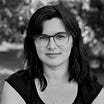A few weeks ago, I came across the work of
who writes “The Financial Planner” on Substack and is in the midst of building a career in financial planning. As an educator, I was captured by her title, “One of the Missing Pieces of My Financial Education,” and wanted to read more. What was Taylor missing, and what filled the gap?The book Money Magic, written by my friend
filled the gap for Taylor, and could it be I helped, too? Taylor is a paid subscriber to PFE.Well, I will wait for Taylor to review Economics-Based Personal Finance, but I think Taylor knows from these pages that personal finance is changing in some small way. There is so much opportunity for individuals, households, and planners to get money right.
I am delighted Taylor accepted my invitation to extend her work in this guest post for all my subscribers.
“One of the Missing Pieces of My Financial Education”
It's well-known that academics aren’t great at getting the news out about their research. Concepts that have existed for decades, let alone new ideas and advances, often don't make it into practice. This is a great loss for those relying on outdated assumptions and rules of thumb.
In my work with farmers, this meant they were often applying too much fertilizer at the wrong time, which was at the expense of their bottom line and the environment. Just by changing the timing of their fertilizer application, they increased its efficiency. By taking a few measurements of their situation, they could calculate what their plants actually needed!
In personal finance, we often do something similar: We spend and save inefficiently. We follow rules of thumb or just what we saw our parents do. Sometimes, this works out for us. Other times, it doesn’t (or causes undue stress along the way).
This even shows up in personal finance education. As I delved deeper into the world of personal finance, I began to see holes. Holes that no one seemed to be able to answer with more than a generalization.
How should I measure the impact of different decisions on my personal finances?
How should we balance spending and savings at this point in our lives versus in the future? (when we make more money, kids will be older, etc.)
How much will we need in retirement?
How much life insurance do we need?
So, I went searching and found some economists filling these holes with research and insights not found in pop-finance books.
is one of these economists. He wrote a book, Money Magic: An Economist’s Secrets to More Money, Less Risk, and a Better Life, which is an excellent introduction to his work and the work of others he draws on.Money Magic walks through a number of personal finance topics, from career choice to housing decisions to social security, with an economic lens. There are no acronyms or feel-good ways to think about budgeting. At times, it feels a bit in the weeds and comes off as a bit crass, but it filled the gaps in my education and understanding. It left me thinking differently about risk, spending, and long-term planning. It put a name on concepts I had a cursory knowledge of but never showed up in my personal finance textbooks or readings (human capital, living standard, consumption smoothing). It bolstered the argument for some fundamentals while questioning things that so many sell as fundamentals. All with case studies to illustrate.
Here are a few of my takeaways (in no particular order):
Taking a mortgage and investing while at it is the same as borrowing money to put in the stock market. Depending on your mortgage rate, it may be a ‘good deal,’ but it's still placing a bet.
You should probably financially plan to your maximum age, not your life expectancy. After all, people don't drop dead when they hit their life expectancy, and you need money for your life even after you're 77.5.
No one questions the employer match, diversification (of investments), or taking advantage of tax-sheltered accounts.
Sometimes, spending your savings (and potentially) even your investments when you’re young makes economic sense.
Though I ardently disagree that the best researchers are the best teachers (teaching is a skill unto itself that researchers often do not cultivate in my experience), and it’s tough to put a price on marriage or divorce (but he does), I found great value at looking at personal finance through the eyes a of an economist. The book is rich with resources to do your own research and even dovetails into a piece of software created by the author, which I promptly bought and am excited to start testing its capabilities.








@RobertPuelz I recently finished reading through your whole Economics-Based
Personal Finance textbook, and I can confirm that you have definitely helped fill in some holes in my education!
This article discusses Taylor Nelsen's journey about one of the missing pieces in her financial education. I think that she brings up a lot of good points when considering the "holes" that she found. I also think that what she learned is something that I have never considered. For example, discussing the mortgage and how you don't want it to be your life expectancy, but your maximum age. I had never even considered that. As well, when she is talking about spending savings at a younger age, I was worrying about that because I have been doing that recently and didn't know if it was the right thing to do. There are still many questions that traditional personal finance hasn't answered, but I now want to read "Money Magic" and see if there are some good take aways for myself.